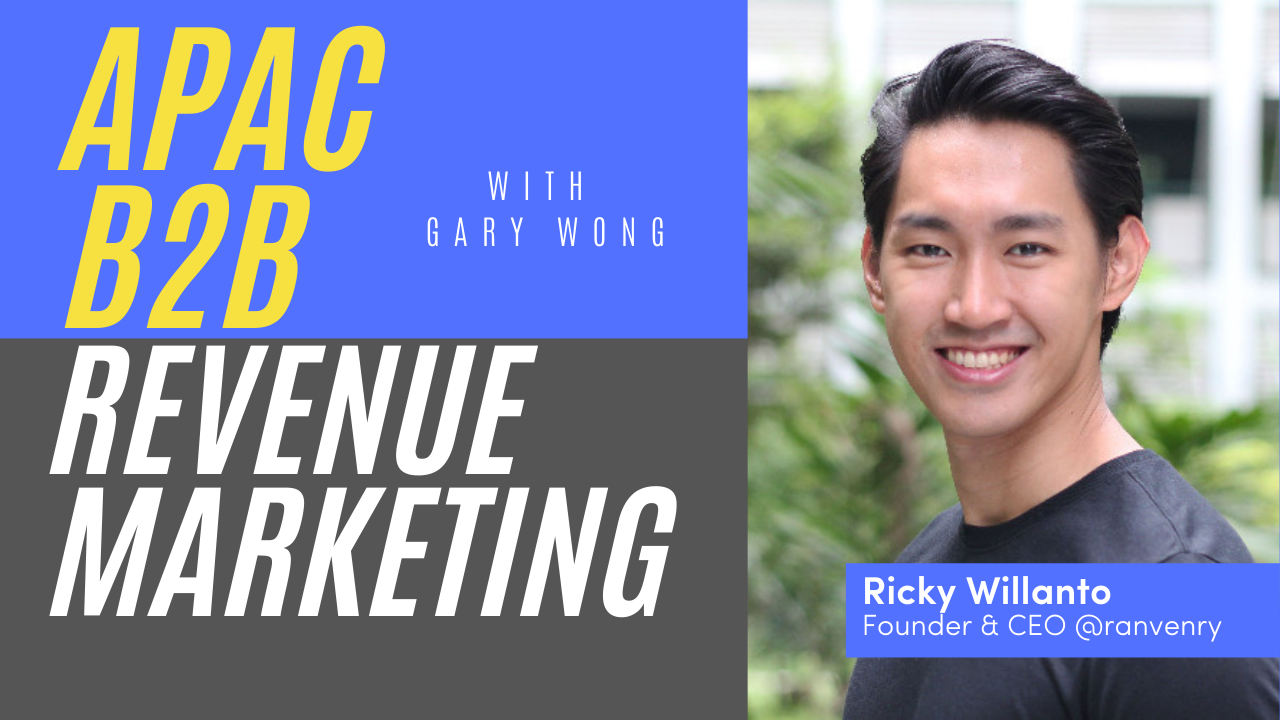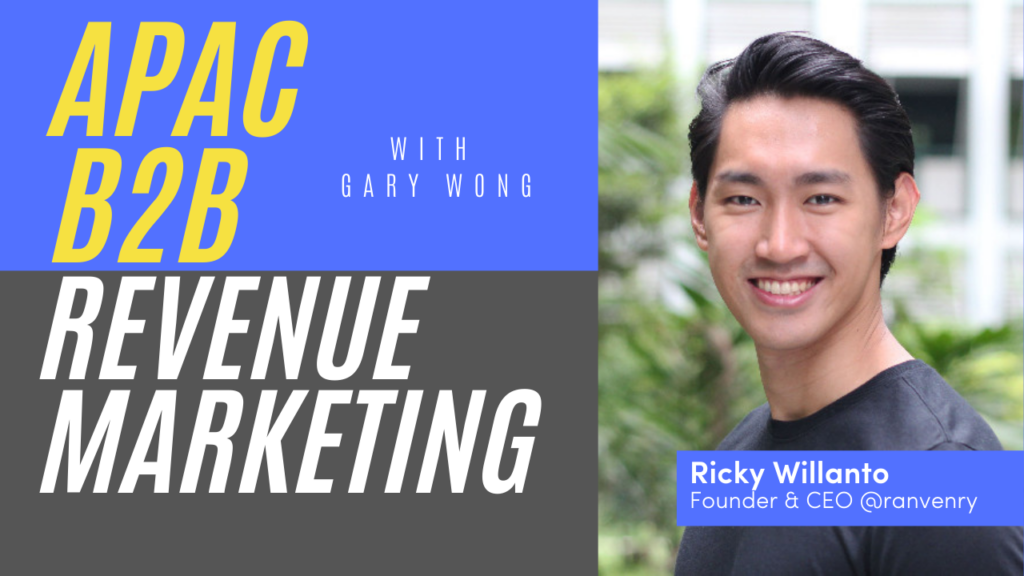The Growth of Ravenry from a Two to Sixteen Member Team in Just 3 Years With Less Than USD 1,000 Marketing Spent

In Conversation with Ricky Willianto, CEO of Ravenry
Listen to the full podcast: https://www.buzzsprout.com/1824245/8914314
Do you feel it’s impossible to build a successful tech-powered business without spending millions of dollars on marketing? My conversation with Ricky Willianto, founder and CEO of Ravenry, reveals otherwise.
Ricky launched Ravenry, a bootstrapped start-up and agency business, in 2018, with a zero marketing budget – helping clients with freelance research papers. Despite their frugal investment, the company has grown into a profitable SaaS platform and popular marketplace for freelance writing and research talent, serving global clients.
I was intrigued to learn about Ricky’s journey, growth stories, strategies and advice for other bootstrapped companies, wanting to succeed with a limited budget.
Let’s dive in and discover the key takeaways from his interview.
Tell us about your background and why you decided to launch Ravenry?
I was a consultant for about eight years, doing work mostly around research strategy for global MNCs. During this time, I kept thinking about how interesting it would be to use the Grab model which is the distributed talent model to do knowledge work, such as research analysis.
I wanted to help more clients find an easy and more affordable way to access consulting services. That’s how I decided to launch Ravenry and founded the company with a friend I’ve known for twelve years.
Fast-forward to today – we are building a freelance marketplace for premium freelance talents focussing on research and content writing.
What led you towards entrepreneurship and starting your own business?
I’ve had entrepreneurship on my mind since I was a kid. And a big part of it was my parents, who were both entrepreneurs. So growing up, entrepreneurship became like white noise.
I have always seen myself starting my own business as it’s a chance for me to add value, create great jobs, self-actualise, and leave a positive impact on the world.
I believe entrepreneurship is about trying something new, taking risks, pushing boundaries, both personally and from an innovation perspective. It is building something better than what’s currently available in the market.

Can you take us through the growth journey of Ravenry? What stage is the company at right now?
Ravenry launched in April 2018 with just two people, and as of June 2021, our team has sixteen full timers. In three years, we have reached a comfortable position running a profitable business. We have a product that very works well. Our customers love it, and we have a lot of repeat customers as well.
We also work with many freelancers and independent workers, offering high-quality solutions to global companies and trying to build their businesses by themselves. They are happy with our platform as it brings them the kind of clients which are hard to achieve on their own.
It is a big achievement for our team to hear how we have been able to help them win huge deals and big global clients – and it also represents the stage we are at as a business.
How did you transition from a consulting business to a freelance platform? Share with us your milestone moments?
I’m a firm believer in building a sustainable and profitable business that takes good care of its employees and does not overwork them or get them into the long race all the time. So opening an agency was a natural starting point since I was from a consulting background.
Interestingly, we made 100$ in the first month from just emails! We asked clients to send us their research questions, and we would answer them in 24 hours. We closed our first deal, and we also got our first couple of clients.
By now, we knew what was working. So we began building tools and processes enabled by technology. Initially, these tools were only used by our team as we were still refining them. And at the end of last year, we decided that it’s time to open the platform to all our clients, marking our transition into a self-service platform. And that transform Ranvenry to what it is today which is a SaaS platform for global clients to find writing and research talent and get quality work with a more affordable price.
What made you start your podcast ‘Growth Multiplier’?
I started Growth Multiplier because I couldn’t find many people in Asia talking about the growth of start-ups. I was interested to hear the Asian founders’ perspective since there’s a difference between how companies and people grow in this part of the world vs Europe and North America.
Ultimately, I hope for people to know Ravenry as the place to go if they want to figure out this market and understand how they can grow here.
So how did you grow your business in just three years, spending virtually ZERO dollars on marketing – and still manage to expand to a 16-people team?
Word of mouth played a big role. In the early days, we used to go to a lot of events. We would speak and present at these events and start meeting clients.
We closed those deals and made sure every client had a good experience because we know that’s going to pay back a lot more than trying to force something to happen just one time. Our focus was more on the input metrics we could control. For examples, out of all the projects that we finish, how many are we getting a five-starts rating, how many did we have a call with them after to get a case study going and once we have the case study, how many of these case study did we send to similar clients. These are all the things that we have full control internally and see what other buttons we can push to make sure the output metric is being affected positively which is how many referrals we get and closed.
We don’t focus on forcing people to share but instead, we focus on what Ravenry can do internally to help people share about us and help more people to have a good experience with our platform.
It was important to find a specific niche and differentiate ourselves with a specific value proposition early on. Research services powered by technology was a nice area as no one in South East Asia or Asia in general was specialised in that vertical. Offering a niche makes people remember what we do and that further propagates word of mouth.
Ravenry became profitable early on. What’s your view on bootstrapped companies compared to those getting VC monies?
I don’t think that either of the two options are better or superior than the other. What I would say to people who want to start a business and considering financing options is to know who you are as founder and what kind of company you want to build and run.
Because ultimately, whether you go bootstrap or opt for venture capital, you will require financing for it to be sustainable. So I think that’s a very important consideration.
For example, we probably could have set up our platform much earlier if we were VC funded. But again, as a founder, I care about building a very calm business. Lots of people are running around trying to quintuple their growth every quarter. I too want growth but I want to do it sustainably. That’s why I left corporate and started by own business.
Also it’s important to know when to raise funds because as a founder, your business is your baby. You want it to turn into something you have envisioned and dreamed of, and that means you need to have lots of control in the business in the beginning at least so you can deeply understand where you can take this business to and how to get there.
So as a founder, you need to understand what kind of business you want, the environment you want to build it in and what business model will work before you decide if you have the need to raise VC fund or not. If you are looking to build a more calm business with lots of control, bootstrapped would be a better option. Instead, if you are looking fo hyper-growth or you found out that you need to build a marketplace for your business to work then raising capital from VC might be a better option.
What’s your advice to the bootstrapped entrepreneurs?
I would say don’t be too overly enamoured by the media. Often, these media and publications are heavily skewed on VC funded start-ups and not bootstrapped stories. So it’s hard to gauge how well you do as a business if you are fighting against companies with 80 million funding.
I found reading too many such publications very detracting from my growth journey and mental health as well. Instead, find resources, communities and founders in line with how you do things and get them to join you in the journey while also contributing to that community.
And from early on, know yourself and the values that are most important to you. Then build a team that shadows those values and is ready to work with the vision you have.
Connect with Ricky Willianto on LinkedIn: https://www.linkedin.com/in/rwillianto/
Listen to the full podcast: https://www.buzzsprout.com/1824245/8914314
theinacademy.com
Take a look around.
[in]side the algorithm
Inside the Algorithm is your weekly download of all things business and magnetic content marketing, from exclusive LinkedIn insider Tips by Salina & Faisal to incredible guest contributors.
JUICY DEETS EVERY WEDNESDAY MORNING!